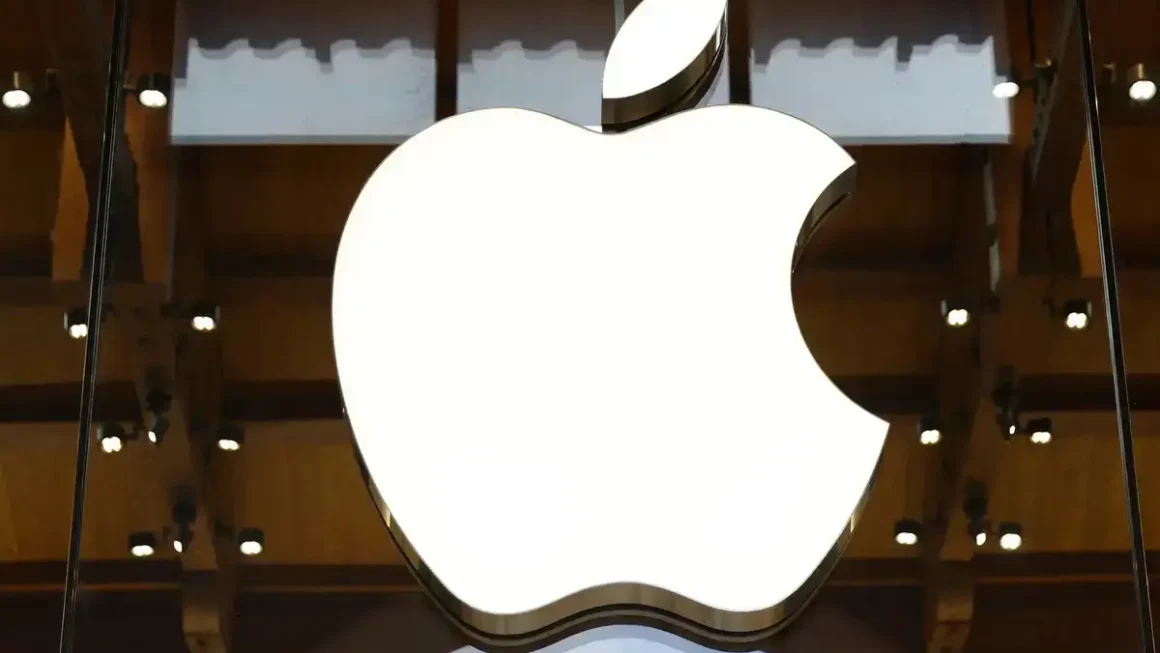The latest earnings reports from Google’s parent company Alphabet (GOOG, GOOGL) and semiconductor leader Intel (INTC) have set the stage for a busy week in Big Tech. Both companies exceeded expectations for revenue and earnings, but the shadow of tariff uncertainty looms large over their financial outlooks.
Intel and Google’s Earnings Amid Tariff Concerns
On Thursday, Intel and Google kicked off the earnings season with solid results, but both companies voiced concerns about the potential impact of tariffs. While trade negotiations under the Trump administration continue, the uncertainty surrounding tariffs and their effects on the U.S. economy have tech giants on edge.
Intel, despite reporting strong first-quarter results, warned that “the current macro environment” would affect its second-quarter revenue forecast, predicting sales between $11.2 billion and $12.4 billion—below Wall Street’s expectation of $12.8 billion. As a result, Intel’s stock dropped more than 7% on Friday.
On the other hand, Google remained less forthcoming on how tariffs might impact its second-quarter performance. Philipp Schindler, Google’s Chief Business Officer, acknowledged that changes to the de minimis exemption—allowing items under $800 to be shipped into the U.S. without a duty—would create “a slight headwind to our ads business in 2025.” This will particularly affect Google’s retail customers based in Asia-Pacific, who may face higher shipping costs.
The De Minimis Exemption and Its Impact on Google’s Ads Business
The de minimis exemption, which has allowed small shipments to bypass U.S. duties, is facing changes that could hurt Google’s advertising revenue, especially for international advertisers shipping products to the U.S. This shift in policy is just one of the many ways tariffs could influence global business operations in the coming quarters.
The Impact of Tariffs on Big Tech’s Future Earnings
With Meta (META) and Microsoft (MSFT) set to report earnings on April 30, followed by Amazon (AMZN) and Apple (AAPL) on May 1, investors are likely to hear more about the implications of tariffs on their businesses.
Intel’s supply chain and manufacturing decisions illustrate the complexity of tariff issues. While Intel produces most of its chips in the U.S., these chips are incorporated into laptops and desktops manufactured overseas, then shipped back to the U.S. Intel observed a surge in demand during Q1, likely driven by customers stockpiling products in anticipation of tariffs. However, this demand is expected to decrease in Q2, contributing to Intel’s lower-than-expected revenue guidance.
Google and Meta: Ad Business at Risk from Tariffs
Although Google refrained from offering detailed projections on how tariffs will impact its financial results, the company could face challenges if advertisers scale back spending due to the uncertainty around tariffs. Meta, a key competitor in the digital advertising space, and Amazon, which has a strong advertising platform of its own, will provide further clarity on how advertisers are responding to tariff concerns in their upcoming earnings reports.
Amazon and Microsoft: Tariffs Could Affect Cloud and AI Spending
For Amazon and Microsoft, tariffs could have broader implications on customer spending, particularly in sectors like AI and cloud services. These tech giants are likely to reveal how tariff uncertainty is influencing their customers’ investment in these high-demand technologies.
Apple: Navigating Tariffs Through Global Manufacturing
Apple, which reports earnings on May 1, could offer significant insights into how tariffs are affecting consumer behavior. To avoid tariffs on products from China, Apple has been shifting some production to India. Bloomberg reports that consumers rushed to buy Apple products ahead of potential price hikes due to tariffs, and investors will be looking for any updates on Apple’s tariff strategy, including whether the company plans to raise prices if exemptions are revoked.
Looking Ahead: A Week Full of Tariff Insights
The upcoming earnings reports from major tech players will provide a clearer picture of how tariffs are impacting Big Tech. Investors will be paying close attention to any forward guidance from Apple, Amazon, Microsoft, and others regarding potential price increases, shifts in consumer behavior, and adjustments to business strategies due to the evolving tariff situation.
Conclusion: Tariffs’ Growing Impact on Big Tech
As the tariff situation continues to evolve, the uncertainty is becoming a key theme in Big Tech’s earnings reports. With major companies like Intel and Google raising concerns about tariffs, it’s clear that this issue will be a critical factor for tech businesses throughout 2025. Investors and analysts will be closely watching how these companies navigate these challenges and whether tariff-related costs will affect their growth in the months ahead.












